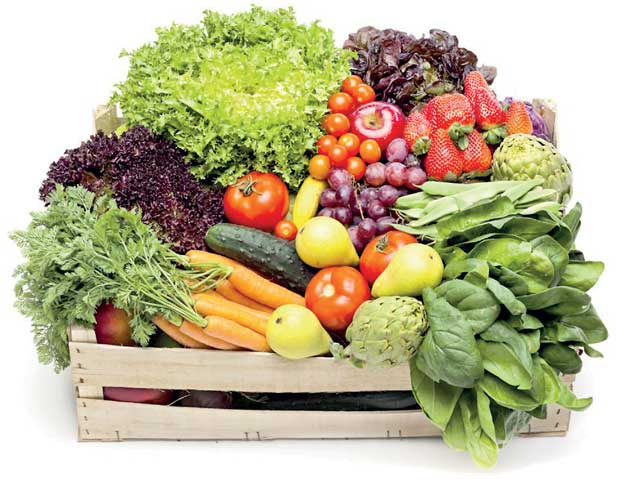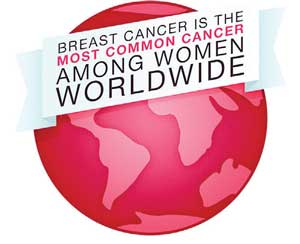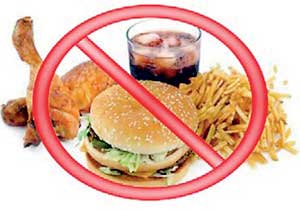13 Oct 2017 - {{hitsCtrl.values.hits}}
Breast Cancer Prevention Awareness Month

Senior Dietitian Fahma Sunarja at Parkway Cancer Centre talks about how a nutritious diet can help women reduce the risk of breast cancer.
There are many myths and misconceptions associated with how food can help you avoid getting breast cancer, or how eating the wrong things can lead to it.
Many of them stem from studies linking certain foods to cancer, or traditional beliefs about the efficacy of certain diets and treatment. Various forms of “anti-inflammatory” diets have also been touted based on the idea that constant or uncontrolled inflammation in the body can lead to poor health and higher risk of cancer.
Ultimately, it is impossible to determine exactly what can help you avoid cancer, because there are so many factors related to its causes.
However, according to the World Cancer Research Fund and the American Institute for Cancer Research, there are some things you can do about your diet that can help you reduce the risk of getting cancer.
These include consuming less energy-dense foods such as cake, pastries, candy, chocolate, and sweets (sugary drinks such as sweetened drinks and carbonated drinks), red meat and processed meat (food that has been preserved and processed, such as salted and smoked foods) mouldy cereals, grains, pulses and alcohol.
EAT LESS OF THESE
While many people take dietary supplements, dietitians advise meeting your nutritional needs through your diet alone. Some of these recommendations are based on studies which reveal that the presence of certain toxins in food can increase the risk of cancer. These toxins are found either naturally occurring in certain foods, or are formed when food is prepared in a certain way.
They include aflatoxin in cereals, grains and peanuts (fumonisin in maize), heterocyclic amines, formed when meat is cooked at high temperatures, such as deep frying (polycyclic aromatic hydrocarbons), which are produced in meat and fish that has been grilled or barbecued over direct flame; and N-nitroso, which are found in foods that contain added nitrates or nitrites – for example, in meat and fish preserved with salt or by smoking or drying.
Conversely, eating plant-based foods has been linked to a reduction in the risk of cancer.
 In recent years, much attention has been focused on what some call “superfoods”, which are believed to help fight cancer. They include blueberries, turmeric, broccoli, walnuts and garlic. Do they really prevent cancer? It is hard to be sure, but what is known is that these foods contain phytonutrients, antioxidants, vitamins and other elements that, when combined with a balanced diet, is part of healthy eating that may reduce the risk of cancer.
In recent years, much attention has been focused on what some call “superfoods”, which are believed to help fight cancer. They include blueberries, turmeric, broccoli, walnuts and garlic. Do they really prevent cancer? It is hard to be sure, but what is known is that these foods contain phytonutrients, antioxidants, vitamins and other elements that, when combined with a balanced diet, is part of healthy eating that may reduce the risk of cancer.
Some have also linked alcohol to breast cancer. There are several ways in which alcohol can indeed raise the risk of cancer.
Ethanol is broken down in the alcoholic drink to acetaldehyde, a toxic chemical and a probable cancer-causing carcinogen.
Acetaldehyde can also damage your DNA (the genetic material that makes up your genes), proteins and lipids (fats) through a process called oxidation. Alcohol may also increase blood levels of estrogen, a sex hormone linked to the risk of a certain breast cancer.
Alcoholic beverages may also contain a variety of carcinogenic contaminants that are introduced during fermentation and production, such as nitrosamines, asbestos fibres, phenols and hydrocarbons.
Some also believe that eating more genetically modified (GM) food instead of organic food can increase the risk of cancer. There is broad scientific consensus, however, that GM crops don’t pose a greater risk to health than conventional food.
DO MORE OF THESE:
 Some believe that eating more organic produce will reduce exposure to toxins and GM material. While they can be included in your diet, organic food may spoil faster and may contain more biotoxins as herbicides and fungicides aren’t used.
Some believe that eating more organic produce will reduce exposure to toxins and GM material. While they can be included in your diet, organic food may spoil faster and may contain more biotoxins as herbicides and fungicides aren’t used.
In the end, the most important advice that women should follow is this: Go for regular screening, adopt a healthier lifestyle, eat well, be physically active, and manage stress.
Nutrition during treatment
If you have been affected by breast cancer and are undergoing treatment, good nutrition will help you overcome some side-effects and maintain energy levels.
Many of the guidelines for healthy eating are applicable during treatment as well. These include cutting down the consumption of sugar and processed meat. On the other hand, red meat such as beef and lamb do provide nutrients like iron, zinc and vitamin B12. These aren’t found in white meat, but are important in forming red blood cells and haemoglobin.
One common advice is that we should replace our intake of sugar with honey. To be sure, honey has some health benefits. Apart from containing vitamins and minerals like vitamin C, iron, calcium and phosphate, honey also has anti-bacterial, anti-fungal and anti-oxidant properties. However, if you are undergoing active treatment such as chemotherapy, radiation therapy or stem cell transplantation, honey may not be safe. This is because most honey isn’t pasteurised and may therefore contain pollens or even bacteria that could cause an allergy or infection.
Many types of supplements are also touted on the market that promise various benefits, but do exercise caution when choosing them. For example, make sure that they don’t contain more nutrients and minerals than what is recommended. It may be best to avoid antioxidant pills during treatment, although supplements that focus on enhancing immunity are generally safe. Whatever supplement you are taking, discuss it with your oncologist or dietitian to make sure that you aren’t taking unnecessary pills.
23 Dec 2024 1 hours ago
23 Dec 2024 3 hours ago
23 Dec 2024 3 hours ago
23 Dec 2024 3 hours ago
23 Dec 2024 5 hours ago